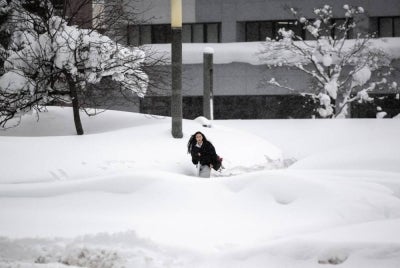Should Malaysia's sex offender list be made public? Criminologists weigh in
SHARIFAH SHAHIRAH
SHAH ALAM - It might not be a known fact, but Malaysia has its own sex offender registry.
The Sexual Crime Registry System (eDKK) was launched on April 1, 2019 by then Deputy Women, Family and Community Development Minister Hannah Yeoh and it was managed by the Welfare Department.
However, the list was not made public as the one in the United States where the public can search for a specific individual using their first name and last name or conduct checks via location.
With a series of cases involving children being sexually abused, the question remained if the sex offender list in the country should be made public.
When asked if the list should be made public, criminologist Nadiah Syariani Md Shariff said that she believed that it was not necessary.
She highlighted that the system was currently accessible to the general public, however users must first obtain authorisation before being able to access the data.
The list, she said, only contained charges that were filed with the Sexual Offence Against Children Act Gazette after 2017, not earlier.
She stated that information about sexual offenders from earlier years might not be available, as only occurrences from 2017 onwards were documented.
“However, it is unclear if the system includes the list of sexual offenders whose victims are individuals above 18 years old,
“As well as for local offenders who committed the crime overseas, since the establishment of the system is according to Act 792,” she told Sinar Daily when contacted.
Nadiah added that although making the system public might appear to be convenient, various factors must be considered first.
She said the first reason was the reintegration of sexual offenders into the community after sentencing. The offenders were registered in the system once they served their sentence.
Nadiah stressed that information privacy was not safeguarded if the system was made public and the whereabouts of the offenders were known.
Due to their struggles with stigma and labelling from society, ex-offenders would find it difficult to adjust and reintegrate into the community.
She emphasised that a large number of reoffending cases were caused by ex-offenders incapacity to adjust and live in society since their primary support systems such as their family and friends did not accept them.
She said that because of their prior criminal histories, some of the ex-convicts faced discrimination from the public and found it difficult to start again. All the focused efforts by the jail administration and rehabilitation centers to get them ready to return to the community could have been wasted effort had the system been made public.
Nadiah added that the public's fear of crime was another reason the list was not available to the public.
Fear and panic would set in among the locals upon discovering that there was an ex-sexual offender in the neighborhood.
“This will affect the public's general well-being and quality of life such as personal safety and mental health.
“With the increased panic and fear, it can lead to inaccurate perception of crime and personal safety, the spread of rumours, overreaction, and unnecessary response.
“Some may avoid any social and community activities due to fear of personal safety, which will further affect social cohesion and unity on a larger scale,” she added.
Nadiah stated that the quantity of information that must be released was limited if it is necessary to grant the public unrestricted access to the system.
She highlighted the necessity to evaluate the system to determine whether it is effective in lowering the number of sexual offenses as well as the need to take into account the rights of ex-offenders, stigmatization, and social harmony.
Meanwhile, criminologist Shankar Durairaja said that the Sex Offender Registry was kept private to avoid the possibility of vigilante justice or unwanted public attention, possible threats and other harassment towards the families of the offenders.
He said that the list was still active, but that they were not yet ready to publish it.
“The register does not have to be public but may be accessible to people with certain interests, such as employers.
“We need to review the register and understand which sexual offenses are recognised for inclusion on the register,” he said when contacted recently.
He also asked about the way the system was being developed to deal with non-serious offenders, those who have committed domestic sexual abuse, and those who have committed cybersex offenses.
Human Rights Commissions Children Commissioner Farah Nini Dusuki when asked said the register cannot be made public.
She said even though the safety of children was the top priority, legal protections should have been respected, including the offender's right to work in other industries but not in those that include children.
“That is why only limited and legitimate access is allowed by the kindergarten or child care centres’ proprietors to screen their prospective employees by writing into the Social Welfare Department Director-General for that purpose.
She also highlighted that Sections 118 and 119 of the Child Act, which should be expanded to include offences against children other than sexual ones.
As of now, for an individual to check the eDKK, they would have to get the MyKad number of the person they would like to check, head to the Welfare Department and give the details there as well as the reasons behind the check.
The result would vary between instantly or up to five working days depending on the state or district department.
Download Sinar Daily application.Click Here!














